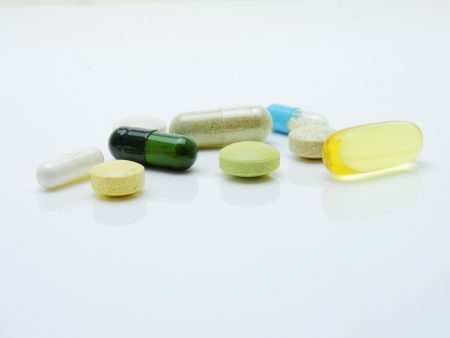Top 5 Vitamin Supplements for Opiate Addiction Recovery
Opiate addiction really ravages the body. Not only do the drugs themselves affect overall physical wellness, the lifestyle of an opiate addict can result in many unhealthy coexisting conditions. When addicts begin to get clean, the physical return to health can be a long, arduous journey. A specific regime of vitamins can help ease the trauma of opiate withdrawal.
If you need help for opiate addiction, call our treatment hotline at 888-414-2380 (Who Answers?) .
Nutritional Deficits in Blood Tests
In 2000, a study was conducted examining the blood of 253 self-identified drug addicts. This study revealed nutritional deficits in protein and albumin levels. These deficits attributed to chronic energy deficiency for those addicted to drugs of varying types, including opiates.
Symptoms of Nutritional Deficits
Addicts with these significant nutritional deficits not only suffered from lagging energy, they also experienced a variety of other symptoms. Any of these symptoms could lead to greater chance of relapse for an addict struggling to recovery. Symptoms indicating nutritional deficits can include:
- Mouth sores and inflammation
- Bleeding gums
- Fatty stools
- Skin changes
- Fatigue
Zinc

Vitamins A, C & E helps cells regenerate.
Zinc aids in development of healthy immunity and improves brain function. Because so many addicts suffer from viral illnesses, adding a daily dose of zinc can be helpful in promoting a healthy immune system. When the body has a greater ability to fight off illnesses and the mind can operate more efficiently, ongoing recovery is easier to manage.
Calcium and Magnesium
Opioid drugs trigger mµ receptors in the brain by accessing individual, calcium-dependent potassium channels. Deficits in calcium and magnesium cause increased sensations of pain and nervous system disorder in the body. Feelings of pain can lead to a slip when addicts are attempting to stop using. Thus, adding calcium and magnesium to the diet is critical to planning for sobriety.
Protein
While many addicts find that their appetite returns with sober living, some continue struggling with nutritional deficits for a number of reasons. Whether poor diet results from living an addicted lifestyle and not eating enough, or the protein receptors are interrupted by opioids blocking channels, some addicts find it helpful to add protein supplements to the diet to kick start recovery. High protein shakes and powders are readily available to add this building block quickly back into the diet of a recovering addict.
Antioxidants: Vitamin A, Vitamin C, Vitamin E
Oxidation at the cellular level causes damage. Generally, nutritional deficits create a perfect environment for oxidation to occur because vitamins like A, C and E are missing from the diet. Adding these supplements can enhance the detoxification process in the cell and helps cells regenerate. This is especially important for recovering addicts who have damaged vital organs with ongoing substance abuse.
Vitamin B and B6
For many, opiate addiction resulted because of a preexisting pain condition. Dealing with chronic pain wreaks havoc on a person’s mental and emotional well-being. Living in constant fear of pain can create extreme anxiety and depression. Vitamin B and B6 are known to be an effective agent in the treatment of ongoing mental and emotional issues. Seeking information about pharmaceutical options used in concert with Vitamin B can help addicts treat underlying conditions that could lead to relapse.
Nutrition and Recovery
Opiate addiction affects every part of a person’s wellness. Nutritional deficits are common place for addicts. Sometimes starting a healthy diet is not enough. Finding a doctor to conduct blood tests to measure nutritional deficits is critical in early recovery. Feeling physically healthy and well is a magical preventative measure for addicts working to recover.
For more recovery advice or for help finding an addiction treatment program, call 888-414-2380 (Who Answers?) .
Resources
Bart, B. (2012). Maintenance medication for opiate addiction: The foundation of recovery. Journal of Addiction Disease. 31(3): 207-225. Retrieved on January 22, 2017 from: https://www.ncbi.nlm.nih.gov/pmc/articles/PMC3411273/
Islam, S., Hossain, K., Ahmed, A. & Ahsan, M. (2002). Nutritional status of drug addicts undergoing detoxification: Prevalence of malnutrition and influence of illicit drugs and lifestyle. British Journal of Nutrition. 88: 507-513. Retrieved on January 22, 2017 from: https://www.researchgate.net/profile/Monira_Ahsan2/publication/11040654_Nutritional_status_of_drug_addicts_undergoing_detoxification_Prevalence_of_malnutrition_and_influence_of_illicit_drugs_and_lifestyle/links/547a8b590cf205d1687fae85.pdf
Nabipour, S., Said, M. & Habil, M. (2014). Burden and nutritional deficits in opiate addiction- systematic review article. Iran Journal of Public Health. 43(8): 1022-1032. Retrieved on January 22, 2017 from: https://www.ncbi.nlm.nih.gov/pmc/articles/PMC4411899/
UNLM (2017). Antioxidants. U.S. National Library of Medicine. Retrieved on January 22, 2017 from: https://medlineplus.gov/antioxidants.html






